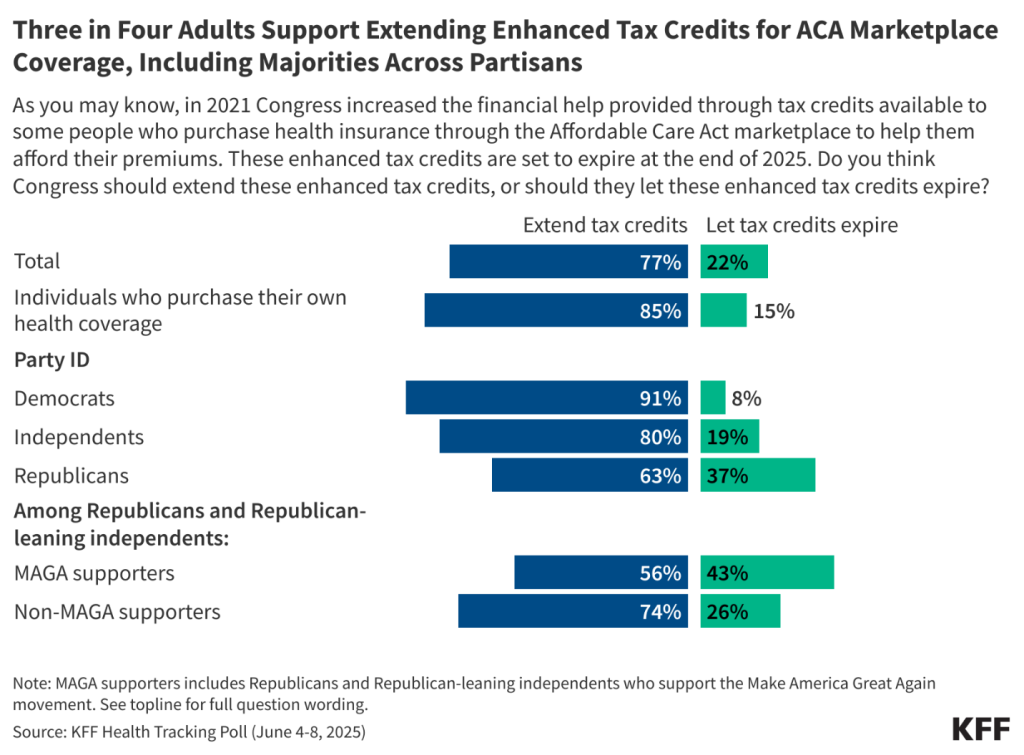With the Affordable Care Act’s (ACA) enhanced premium tax credits set to expire at the end of 2025, a large majority (77%) of the public favor Congress extending the credits while about one in five (22%) say they should let them expire, the latest KFF Health Tracking Poll finds.
Majorities of Democrats (91%), independents (80%), and Republicans (63%) say the enhanced tax credits should be extended by Congress, as do more than half (56%) of Republicans and Republican-leaning independents who identify as supporters of President Trump’s Make America Great Again movement (MAGA).

Since 2021, the enhanced premium tax credits have helped lower what consumers pay for ACA Marketplace coverage and fueled record enrollment in the program. Without the tax credits, Marketplace enrollees could see what they pay out-of-pocket for premiums rise by more than 75%, and the Congressional Budget Office estimates that more than 4 million people would end up uninsured.
The poll also finds that most (72%) of the public have heard little or nothing at all about the enhanced tax credits, and people’s views on whether to extend them can shift when presented with different facts and arguments about their impact.
When those who initially support extending the credits hear that it would require significant federal spending and increase the nation’s budget deficit, overall support drops from 77% to 58%.
On the other side, when those who initially oppose extending the credits hear that letting them expire would make health insurance unaffordable and increase the number of uninsured, overall support rises from 77% to 84%.
Designed and analyzed by public opinion researchers at KFF, this survey was conducted June 4-8, 2025, online and by telephone among a nationally representative sample of 1,321 U.S. adults in English and in Spanish. The margin of sampling error is plus or minus 3 percentage points for the full sample. For results based on other subgroups, the margin of sampling error may be higher.







